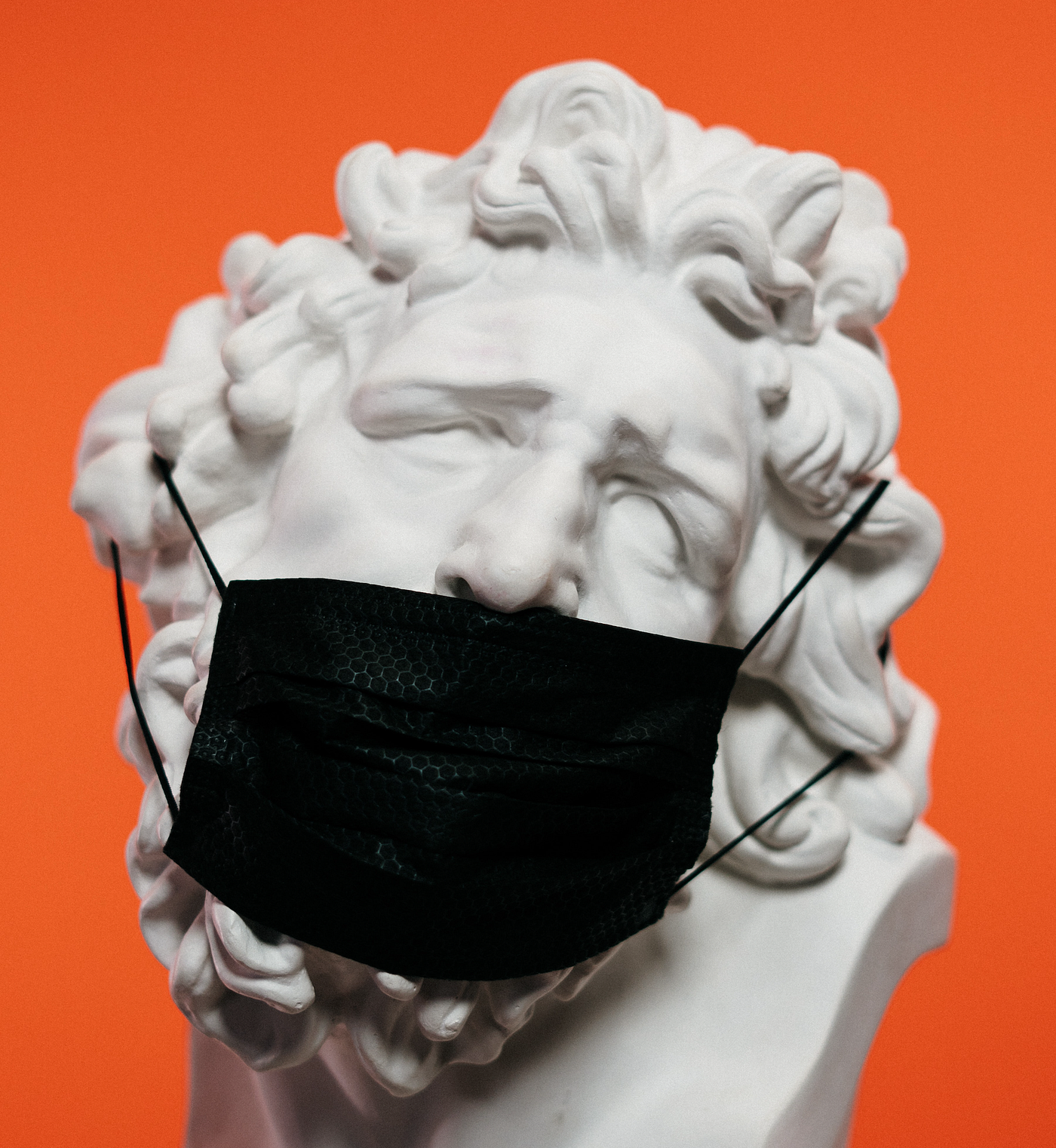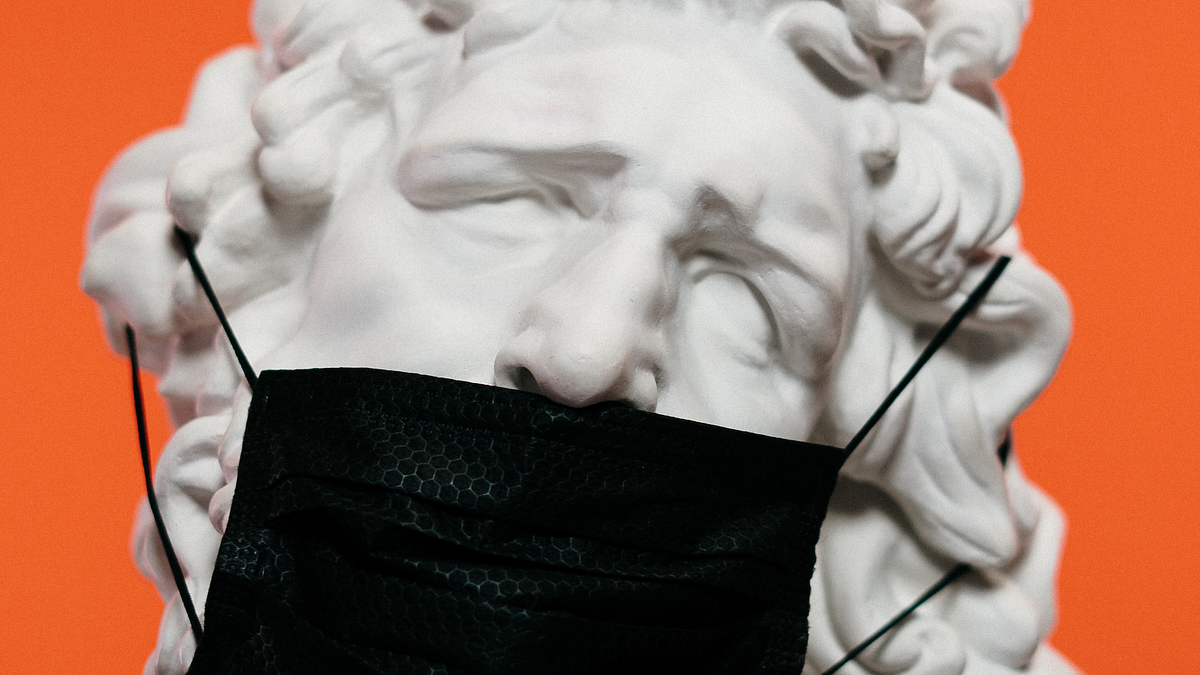
In Silicon Valley, people compete to solve the world’s most high-profile problems. We know this reality well as a couple who both work in tech, albeit from different perspectives — Elisabeth as a journalist and native of the South Bay and Ulrich as a Hong Kong-based startup investor. So it was no surprise in early 2020 when the chatter in our social networks quickly turned from cryptocurrency and climate change challenges to biotech and medicine.
In our network of Bay Area entrepreneurial friends, “What are you doing to help with Covid-19?” quickly replaced Silicon Valley’s tried-and-true “How do you spend your time?” Because how else would you spend your time during a pandemic other than dropping everything to join the fight?
The answers to this new go-to question are invariably links to home-brewed ventilator designs, contacts for someone who knows someone who can get personal protective equipment (PPE) to doctors, and laundry lists of Covid-19 startup ideas. All of these efforts are fueled by newfound biomedical interests and overnight expertise, all desperately seeking urgent funding.
The first time we encountered the “What are you doing to help” question, we felt mild panic, like we were last-minute invitees to a networking event and now had to prove that we deserved to be there. We were pretty sure the person asking already had a preprepared answer for themselves, and we were pretty sure that answer contained significantly more bullet points than ours. Before we’d even begun to describe what we had done, we felt guilty that we hadn’t done enough — that we hadn’t dropped everything to join the armies of people turning household appliances into breathing contraptions in the tech world. That we hadn’t developed overnight expertise in virology or — like Elon Musk — retooled our company toward medical supply manufacturing.
In short, we felt guilty that we were still taking out the trash when, as one friend put it, “We have more important things to do.”
While this pandemic is a serious threat and requires everyone to adapt, not everyone is equally equipped to fight on the front lines of this particular battle. Not everyone is a biotech engineer, doctor, hospital supply chain expert, or PPE procurement agent, and not everyone can become one — at least not overnight.
For many in Silicon Valley, where tradition is eschewed and solving difficult problems often means dipping into different disciplines, the instinctive response to learning about a life-threatening problem is to solve it. We’re used to finding solutions by applying fresh thinking to established fields despite a lack of expertise in it. We praise those efforts, even if they fail, and preach to simply learn from failure and try again.
We don’t need grand gestures; we need everyone to do their part to keep the fabric of civilization intact.
But these are not ordinary times, and this is not an ordinary problem. There is less time to learn, and failure can have consequences.
Early on, many of our friends and colleagues (and to some extent, ourselves) thought they were well-positioned to help in this crisis, had creative ideas for making a bold difference, and acted on them only to run up against unexpected roadblocks. In many cases, they learned the challenges weren’t technological or design-related like they’re used to but something entirely unexpected, like regulatory issues or import restrictions. When it became clear that their race to the front lines was only adding noise and confusion to an already complicated system — one in which experts were already working tirelessly — they gracefully retreated. Their efforts deserve praise, but so does the decision to back off when attempts to help turn out to be fruitless.
In Silicon Valley, we like to think we can disrupt any industry or fix any problem with technology and our way of thinking. But Covid-19 can and should humble us — certain problems, especially a medical crisis so unclear and fast-moving, can be better left to those who have been working on them for decades.
So if you’ve taken on an initiative to help, and it’s harder than you thought — requiring so much time and energy that it weakens your immune system and detracts from your other responsibilities — consider leaving it to those who already have the connections, resources, or expertise you’re trying so hard to establish. It’s okay to relax and take care of yourself. Most of all, don’t feel guilty. How we weather this pandemic isn’t just in the hands of doctors and virologists; it’s also up to you. Specifically, how you take care of the aspect of civilization you have been responsible for and still are.
The thing is, we don’t just have a virus problem or a medical care problem. The Covid-19 pandemic has completely changed most aspects of the lives of billions of people and will continue to change them in ways we can’t yet foresee. Every industry, every job, and every life will be affected. And the effects will last long after the ventilator supply crisis or lockdowns.
As tempting as it might be to take your hands off the wheel to race to solve the most high-profile problems, it has never been more important to stay focused on doing your part in a way that may get less of the limelight. To lean on your own experience and resources to do your unique part to keep the world spinning. That could mean using your cooking skills to whip up a meal for an elderly neighbor, making a professional fundraising video for a local charity, purchasing equipment and supplies from local businesses, or giving blood. It also means taking care of things that aren’t directly Covid-19-related but that keep our society functioning and healthy: maintaining businesses, creating jobs, homeschooling children, or simply doing the dishes. Each one of us plays a role in the path to recovery. And for that, we should all be commended, be it hospital staff, medical device manufacturers and virologists, or anyone doing their job to keep every aspect of our society afloat.
One of the best arguments for this that I’ve seen is in The Plague, a novel published in 1947 by French philosopher Albert Camus. Eerily prescient of our current pandemic, the protagonist, Dr. Rieux, and a former soldier, Rambert, discuss what it means to be heroic in a pandemic:
“I have to tell you this: this whole thing is not about heroism. It’s about decency. It may seem a ridiculous idea, but the only way to fight the plague is with decency.”
“What is decency?” Rambert asked, suddenly serious.
“In general, I can’t say, but in my case I know that it consists of doing my job.”
The pandemic is not a war that’s going to be won by brilliant minds dropping everything and racing to the front lines. In fact, this is not a war at all. As Camus would put it, pandemics are part of the human condition, absurd as that may be. To overcome our condition — to remain civilized — we don’t need grand gestures; we need everyone to do their part to keep the fabric of civilization intact so that those who are on the front lines can stay focused and ultimately return home to a world where people still have food. Where jobs are still being created. Where people are still taking out the trash.
In the time of Covid-19, this, too, is heroic.







